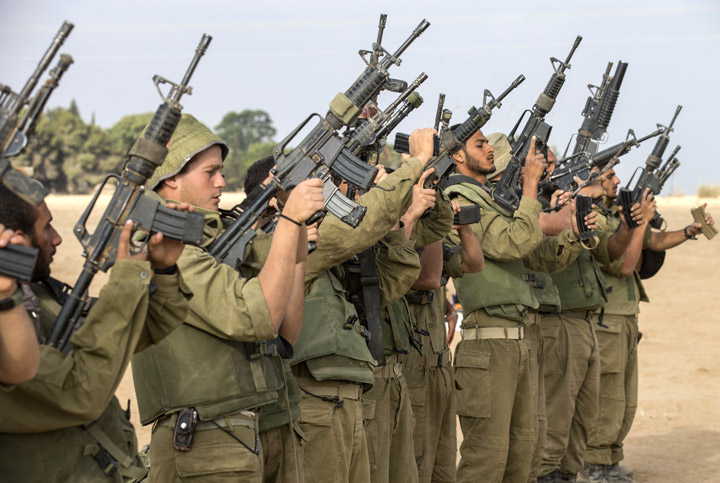A Canadian Jewish organization has been stripped of its charity status following a government audit that found it had provided support to “foreign armed forces,” according to documents obtained by Global News.

The Beth Oloth Charitable Organization, based in Toronto, had been a registered charity since 1980 and was one of richest in Canada, with more than $60-million in revenues in 2017.
But federal regulators said some of its activities were not charitable under Canadian law, such as “increasing the efficiency and effectiveness of the Israeli armed forces.”
The Canada Revenue Agency also identified a list of other problems such as funding projects in the occupied territories, which it said was contrary to Canada’s policy on the Israeli-Palestinian conflict.
The president of the former charity could not be reached for comment. The address listed in CRA records is a home in North York. The group does not appear to have a website.
But in the audit documents, the CRA Charities Directorate said the group had not issued tax receipts properly, lacked “direction and control” over the use if its funds, and had funded non-charitable activity.
That included educational programs called mechinot that prepared high school students for Israeli military service.
The programs provide weapons training, physical and martial arts training, mentoring by Israel Defence Forces officers and visits to army bases and sites of historical battles, the CRA wrote.
“It is our position that these pre-army mechinot exist to provide support to the Israel Defence Forces, and that funds forwarded to these mechinot are therefore in support of foreign armed forces,” the agency wrote.
WATCH: Israeli military strikes Iranian targets in Syria

The revocation was announced in the Jan. 12 edition of the government’s Canada Gazette. The CRA released 94 pages of documents on the case on Friday. The group has 90 days to appeal.
Beth Oloth has received vast donations in recent years — $61-million in 2017, $45-million in 2016 and $42-million in 2015.

Get breaking National news
Most of it came from other registered charities, but individual donors also contributed. Last year, the Globe and Mail ranked Beth Oloth 62nd on the list of the largest charities in Canada by tax-receipted donations received.
Almost all its money went abroad. In 2017, Global Philanthropy, a newsletter by Toronto charity lawyer Mark Blumberg, placed it 15th among charities that spent the most outside Canada.
But the CRA said Beth Oloth appeared to be acting as a “conduit” that issued tax receipts to donors in Canada to fund the programs of others.
Blumberg told Global News that reading the details of the case was “shocking” and the government should be embarrassed the charity was allowed to operate for so long, noting that despite spending tens of millions annually it had only two active board members and one or two staff.
“This is an example of the type of ‘efficient’ charity we don’t need in Canada. It is efficient at giving out tax receipts but not effective in making sure that the $200-million of tax-subsidized dollars was spent appropriately,” he said on Sunday.
The lawyer called it an example of “very poor governance and compliance” and a wake-up call to donors . He also said it highlighted the importance of rules governing charitable work abroad.
“If abuses like these are allowed to continue it will undermine the public’s confidence in the whole charitable sector,” he said.
Aside from supporting the Israeli forces, the auditors said Beth Oloth had funded projects totaling $1.2-million in the occupied territories, which they said was contrary to the Canadian government’s Middle East policy.
The portion of the documents listing the projects was blacked out by the CRA.
Beth Oloth responded in the documents that most of its work involved providing “stipends to the poor for the observance of religious life,” which it said fell outside the scope of Canada’s policy in the region.
The CRA did not accept that.
“Providing assistance to Israeli settlements in the occupied territories serves to encourage and enhance the permanency of the infrastructure and settlements and therefore is contrary to Canada’s public policy and international law on this issue,” the agency wrote.
In its response to the CRA allegations about the Israeli military, Beth Oloth said it only funded teachers to provide religious training at mechinot schools. But the CRA said it was not satisfied with that explanation.
“Our position remains that support for pre-army mechinot, which includes support for teachers, represents support for the armed forces of another country, which is not charitable in law,” it wrote.
According to CRA documents, Beth Olath reported relatively small revenues between 1980 and 2003, and was mostly inactive between 2003 and 2011, raising a mere $21,000 in 2008.
But it went through rapid growth in 2012, reporting more than $9-million in revenues. In 2013, it raised $27-million, followed in 2014 by $36-million. Most of the money went to “foreign intermediaries,” the CRA said.
Explaining its role to the CRA, Beth Oloth wrote that some ultra-Orthodox Jewish men have large families and do not work, but rather are devoted full-time to the study of religion.
“Consequently, poverty is widespread amongst the ultra-Orthodox communities,” it wrote. “Beth Oloth works almost entirely to help these poor individuals with their various needs.”
The CRA, which began auditing the group in 2016, said it had revoked Beth Oloth’s registration for failing to devote its resources to charitable activities. The organization was also not “constituted for exclusively charitable purposes,” the CRA ruled.
Earlier this month, the CBC reported that a smaller charity, the Jewish National Fund of Canada, was under CRA scrutiny for supporting the Israeli military, but it said it had stopped doing so in 2016. It remains a government registered charity.










Comments